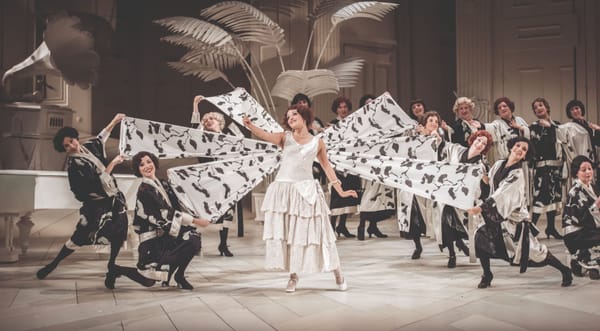Crisis? What Crisis?: How to Save a Minority Government or Die Trying

4.5 stars
The government has no working majority, millions are protesting on the street and economic catastrophe seems imminent. Sound familiar? Well, the year is 1979: in the midst of mass industrial action and the coldest winter in two decades, the Labour Party’s grip on power hangs in the balance, and it’s up to you to save it.
No, literally. This is an immersive production - every decision made during the course of the night is up to you and your fellow theatregoers, so it’s best to get your armchair politician out. The instant you get into the control room (a condensed Whitehall, replete with 70s decor and serviced by a fax machine) a Party membership card is thrust into your hands, a few light pleasantries exchanged, and you’re given 150 minutes to stop the government from falling.
And what a state it’s in: tonight’s the night of a vote of no confidence; the lorry drivers are on strike, with nearly every sector of the industrial economy looking to follow suit; martial law is hours from being declared; and nobody’s even bothered to clean away the cigarette stubs and apple cores covering the table. If you think this all seems too much to solve in a single night, you’re completely right - and that’s what makes Crisis? What Crisis? such unabashed fun. Once HQ’s been tidied, it’s entertainment as a spinning plates act: in a single flourish, you can start a trade war with the United States, join the Soviet Bloc, or get Junta’d by the British Military as you reel from one crisis to another. This is a pre-Thatcherite world of trade unions, and correspondingly much of the night is spent appeasing one sector of the economy only to stir another into open revolt - the experience of getting roundly hammered by a dead-red union leader at the negotiating table (a more humbling turn-of-events than I can possibly express) alone justifies the ticket price.
So it turns out governing is hard, and for all our idle speculation it’s easy to forget that good intentions do not necessarily produce good outcomes. As enjoyable as Crisis? What Crisis? is, it might also be the best bit of civic education I’ve ever received, even if that comes with the depressing realisation that governmental ineptitude might be the norm rather than the exception - though we did actually end up saving the government, whatever that counts for (of course, without spoiling anything, there are far more entertaining outcomes possible). Perhaps the only drawback of the production is that its striking verisimilitude rewards a passable knowledge of the era, so it might be worth reading up the Winter of Discontent on Wikipedia before you go. Still, that’s not the worst pre-show requirement in the world: you know what they say about not learning from history.







